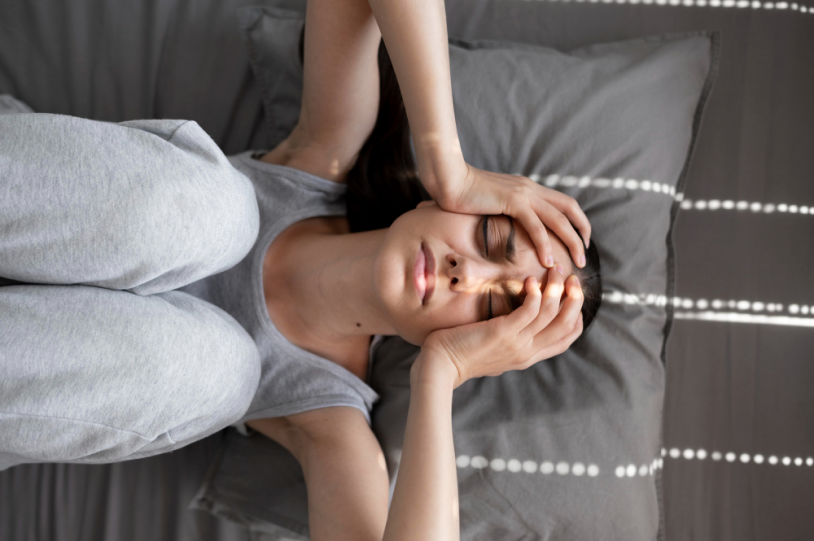
Introduction
Depression and anxiety are pervasive mental health issues that affect millions of individuals globally, across all age groups. These conditions can significantly impact daily life, emphasising the need to adopt effective methods for managing and alleviating their symptoms. In this comprehensive guide, we will explore various strategies and techniques that can assist individuals in coping with depression and anxiety.
Understanding Depression and Anxiety
Depression
Depression is characterized by persistent feelings of sadness, hopelessness, and a loss of interest or pleasure in activities. It can lead to physical symptoms such as changes in appetite and sleep patterns, as well as emotional challenges like difficulty concentrating and feelings of guilt or worthlessness.
Anxiety
Anxiety involves excessive worry and fear about everyday situations. It can manifest as physical symptoms such as a rapid heartbeat, sweating, and trembling. Anxiety disorders can interfere with daily life and may lead to avoidance behavior.
Effective Methods for Managing Depression and Anxiety
1. Seek Professional Help
The first and crucial step in managing depression and anxiety is to reach out to a mental health professional. Therapists, counselors, and psychiatrists are trained to provide guidance and treatment tailored to your specific needs. They can offer therapies such as cognitive-behavioral therapy (CBT) and prescribe medication when necessary.
2. Practice Mindfulness and Meditation
Mindfulness and meditation techniques can help individuals stay grounded and reduce the symptoms of depression and anxiety. These practices encourage focusing on the present moment, promoting relaxation and emotional well-being.
3. Regular Exercise
Physical activity releases endorphins, which are natural mood lifters. Engaging in regular exercise can significantly reduce the symptoms of depression and anxiety. Even a short daily walk can make a difference in how you feel.
4. Maintain a Healthy Diet
Eating a balanced diet rich in nutrients can positively impact your mental health. Avoid excessive consumption of processed foods and sugar, as they can contribute to mood swings and energy crashes.
5. Get Adequate Sleep
Sleep plays a crucial role in regulating mood and emotional well-being. Ensure you get enough restful sleep each night, aiming for 7-9 hours, as sleep deprivation can worsen symptoms of depression and anxiety.
6. Build a Support System
Reach out to friends and family for emotional support. Sharing your thoughts and feelings can help alleviate the burden of depression and anxiety. Joining support groups or online communities can also provide a sense of belonging.
7. Set Realistic Goals
Break down tasks into manageable steps and set achievable goals. This can help you regain a sense of control and accomplishment, reducing the feelings of hopelessness often associated with depression and anxiety.
8. Limit Stressors
Identify sources of stress in your life and take steps to reduce or eliminate them. This may involve adjusting your work-life balance, setting boundaries, or practicing relaxation techniques.
Conclusion
Dealing with depression and anxiety can be challenging, but with the right strategies and support, it is possible to manage and even overcome these conditions. Seeking professional help, practicing mindfulness, maintaining a healthy lifestyle, and building a strong support system are all essential components of a successful approach to dealing with depression and anxiety. Remember that you are not alone, and there are effective methods available to help you regain control of your mental health. ( Modify this content )
Frequently Asked Question
Social Work organization or practice. This content covers common questions that clients, students, or the general public might have about social work services, roles, and support:
-
Is my technology allowed on tech?There are many variations of passages the majority have suffered alteration in some fo injected humour, or randomised words believable.
-
How to soft launch your business?There are many variations of passages the majority have suffered alteration in some fo injected humour, or randomised words believable.
-
How to turn visitors into contributorsThere are many variations of passages the majority have suffered alteration in some fo injected humour, or randomised words believable.
-
How can i find my solutions?There are many variations of passages the majority have suffered alteration in some fo injected humour, or randomised words believable.
 info@newlife.com
info@newlife.com 390 Racetrack Rd. McDonough, GA 30252
390 Racetrack Rd. McDonough, GA 30252
 404-275-2322
404-275-2322
